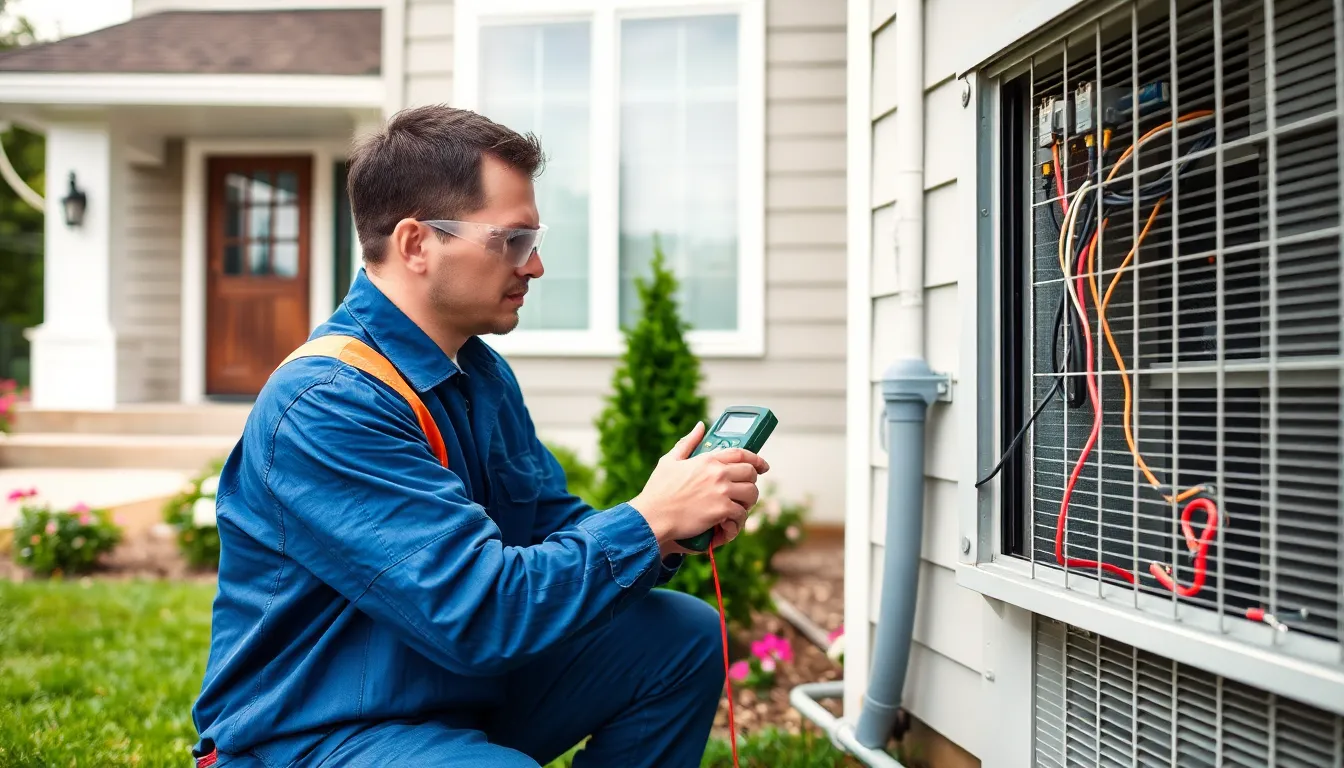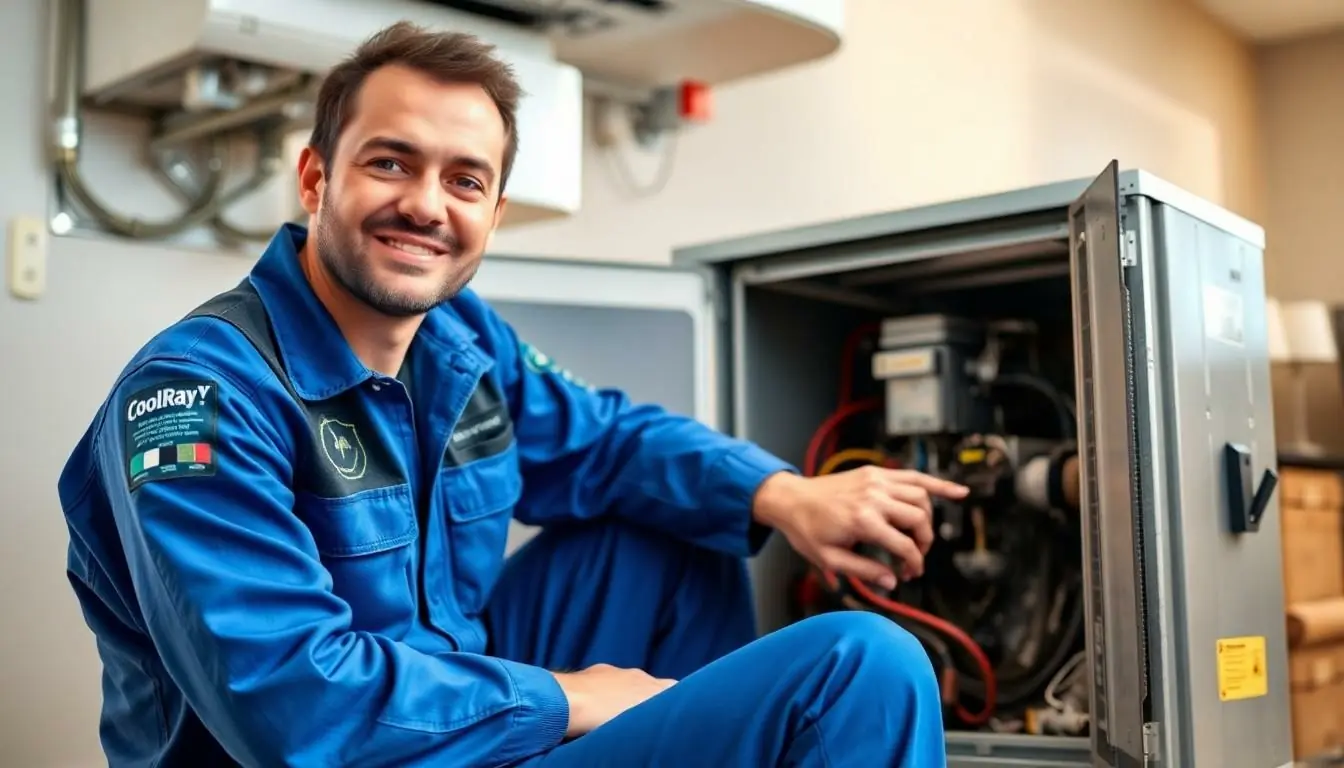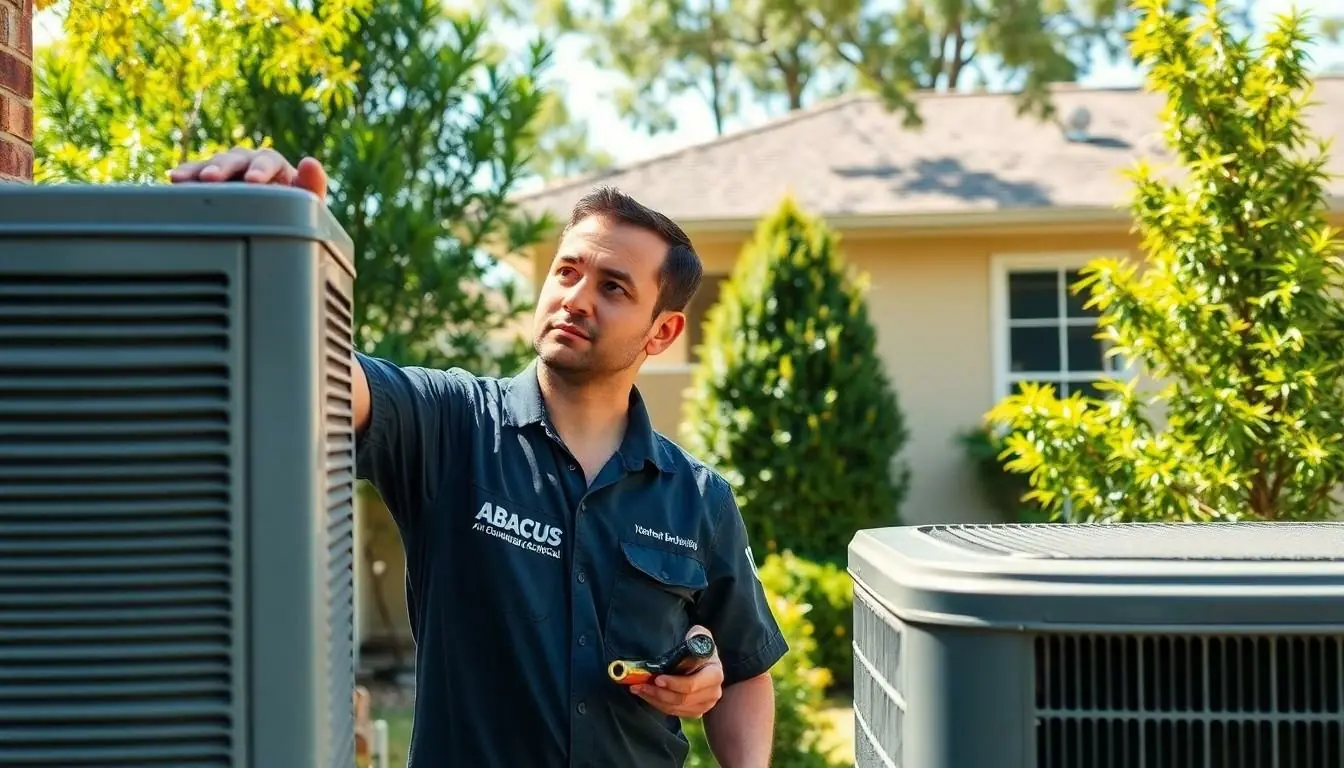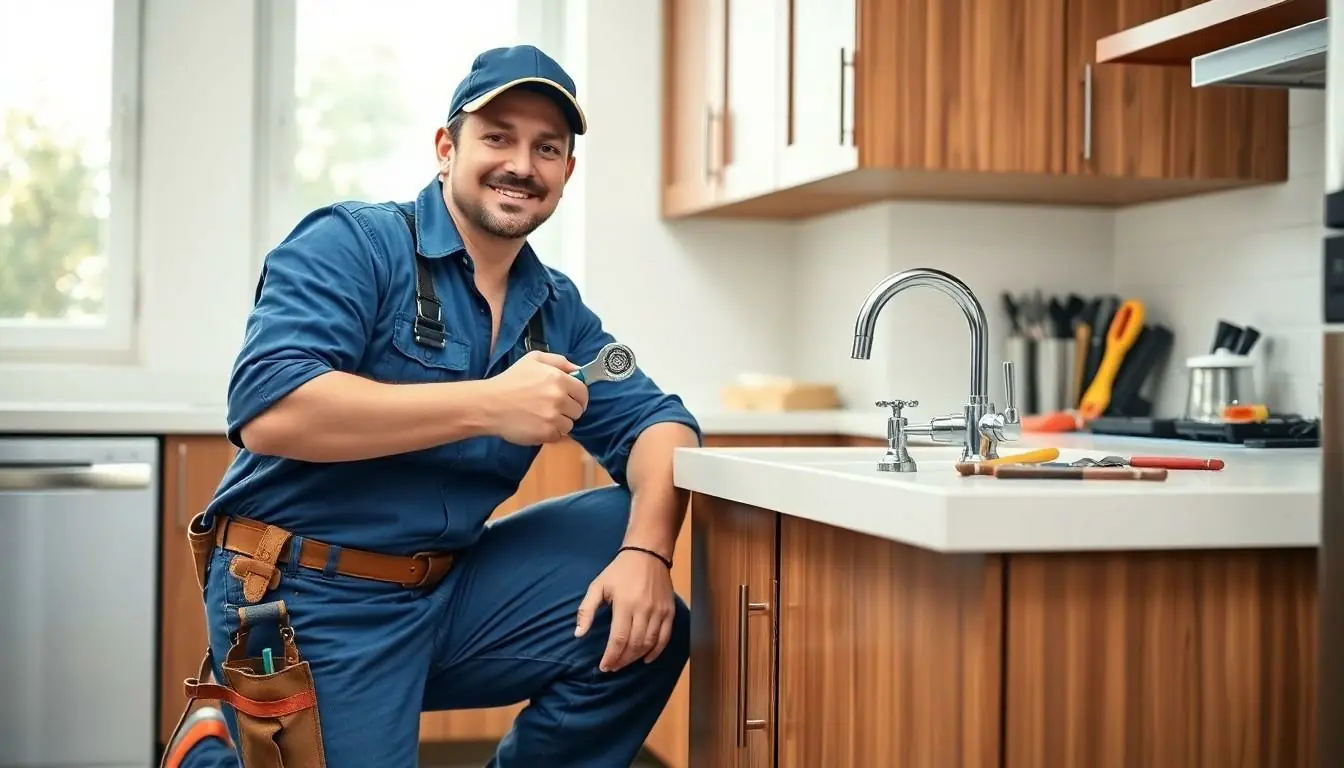Table of Contents
ToggleIn the world of home maintenance, plumbing, electrical, and HVAC systems are the unsung heroes that keep everything running smoothly. Imagine living without hot water for your morning shower or battling a stubborn thermostat that thinks it’s a winter wonderland in July. These essential systems are like the three musketeers of comfort—each one plays a vital role in creating a cozy and functional living space.
Overview of Plumbing, Electrical, and HVAC
Plumbing, electrical, and HVAC systems contribute significantly to a home’s efficiency and comfort. Each system plays a crucial role in supporting daily activities.
The Importance of Each System
Plumbing systems deliver clean water and remove wastewater. They prevent health hazards by ensuring safe sanitation. Electrical systems provide necessary power for appliances and lighting. Proper electrical wiring enables households to efficiently operate devices. HVAC systems regulate temperature and maintain air quality. They ensure comfortable indoor environments, regardless of outside conditions. Each system’s functionality directly impacts overall living conditions, underscoring their value in home maintenance.
How They Work Together
Coordination between plumbing, electrical, and HVAC systems promotes efficiency. For example, HVAC units often require electrical power to operate. With proper plumbing, the HVAC system maintains optimal humidity levels. Electrical systems might power water heaters connected to plumbing lines. When these systems work harmoniously, they enhance energy efficiency and ensure a comfortable living space. Seamless integration prevents issues, maintaining safety and reliability within the home.
Common Issues in Plumbing, Electrical, and HVAC
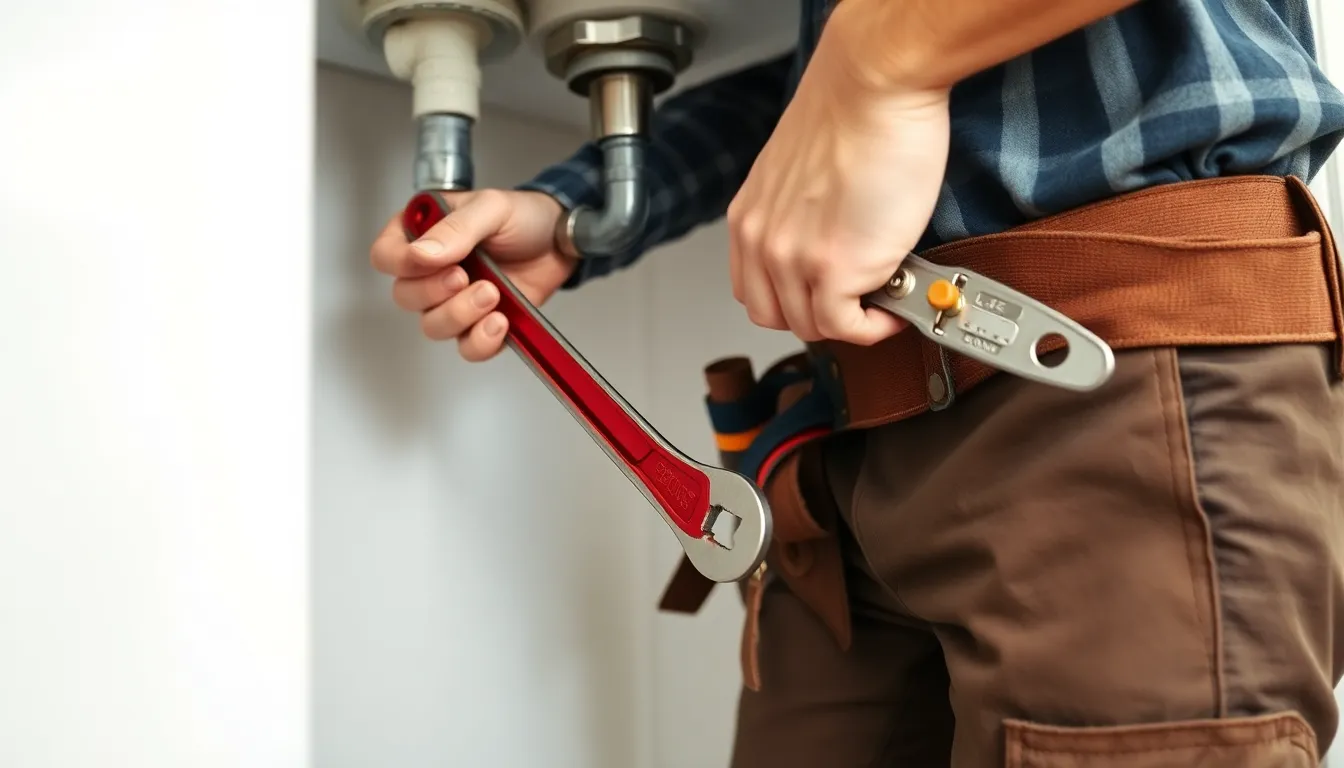
Plumbing, electrical, and HVAC systems face several common issues that can disrupt home comfort. Identifying and addressing these problems promptly ensures safety and efficiency.
Identifying Plumbing Problems
Leaking pipes frequently cause water damage and increased bills. Signs of leaks include damp spots on walls or ceilings. Clogs in drains often lead to slow water flow or backups, which require immediate attention. Corroded pipes not only affect water quality but also raise health concerns. Regular inspections can help homeowners detect these problems early, preventing costly repairs.
Troubleshooting Electrical Issues
Tripped circuit breakers often indicate an overload or short circuit, signaling a need for further investigation. Flickering lights can suggest loose connections or faulty fixtures, resulting in unreliable lighting. Power surges not only damage appliances but also create fire hazards; addressing surge protectors can minimize risks. If outlets produce burning smells, they require immediate examination from a qualified electrician to prevent electrical fires.
HVAC System Failures
Dirty filters frequently restrict airflow, leading to inefficient heating or cooling. Refrigerant leaks result in inadequate temperature regulation, causing discomfort during extreme weather. Malfunctioning thermostats may fail to maintain desired temperatures, requiring prompt replacement. Odd noises from HVAC units often signal mechanical issues that need attention. Regular maintenance ensures optimal performance and extends system lifespan.
Maintenance Tips for Each System
Maintaining plumbing, electrical, and HVAC systems ensures a comfortable and efficient home. Regular attention to these systems helps prevent issues and prolongs their lifespan.
Plumbing Maintenance Best Practices
Inspect pipes regularly for leaks and corrosion. Clean drains to prevent clogs and ensure smooth water flow. Flush water heaters annually to remove sediment buildup, improving efficiency and longevity. Test water pressure to avoid excessive strain on pipes. Replace worn out fixtures to maintain optimal functionality and efficiency.
Electrical System Care
Schedule inspections to identify wear and tear on wiring. Replace flickering light bulbs and ensure loose connections are secured. Check circuit breakers for tripped switches and reset as necessary. Limit the use of extension cords by installing additional outlets when needed. Educate household members about safe electrical practices to prevent accidents.
HVAC Maintenance Essentials
Replace air filters every one to three months to ensure clean airflow. Clean condenser and evaporator coils annually for optimal performance. Inspect ducts for leaks and seal to maintain energy efficiency. Schedule professional maintenance biannually to check refrigerant levels and thermostat accuracy. Ensure outdoor units remain clear of debris for proper ventilation.
When to Call a Professional
Identifying when to call a professional is essential for maintaining plumbing, electrical, and HVAC systems. Noticing specific signs can prevent significant issues and ensure a safe living environment.
Signs You Need Expert Help
Signs that indicate the need for professional assistance include persistent leaks in plumbing systems, frequent tripped circuit breakers in electrical setups, or inconsistent temperatures from HVAC units. Understanding these warning signs aids in determining the severity of the problem. For instance, if water accumulates near fixtures or walls, immediate action is crucial to prevent water damage. Likewise, flickering lights often signal an electrical issue that requires expert evaluation. In HVAC systems, unusual noises or odors signal a malfunction that can lead to discomfort and increased energy costs. Timely intervention addresses these problems effectively.
Choosing the Right Contractor
Choosing the right contractor involves several steps to ensure quality service. Start by researching local professionals with positive reviews and verified credentials. Verifying licenses and insurance provides peace of mind regarding the contractor’s qualifications. Additionally, obtaining multiple estimates helps compare services and pricing, ensuring value for the service rendered. Checking references allows for insights into a contractor’s reliability and workmanship. Finally, inquire about warranties on services and materials to guarantee long-term satisfaction. Selecting the right contractor streamlines repairs and enhances system efficiency.
Maintaining plumbing, electrical, and HVAC systems is crucial for a safe and comfortable home. Regular inspections and proactive maintenance can prevent costly repairs and ensure these systems function efficiently. By addressing issues promptly and knowing when to call a professional, homeowners can protect their investments and enhance their living environment. Choosing the right contractors further ensures that each system operates at its best. Prioritizing these essential components not only boosts energy efficiency but also contributes to overall well-being in the home.

